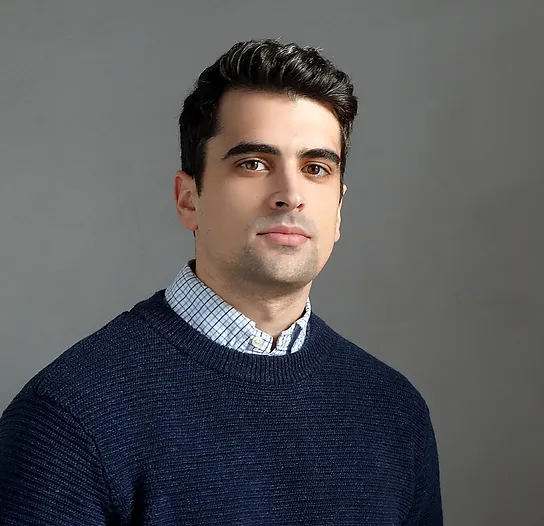Pierre is a leading college and graduate admissions consultant with extensive experience in education and entrepreneurship. His advice has been featured on Forbes.com, U.S. News, CNN Business, the Washington Post, ABC News, Business Insider, and more.

Welcome to the supplemental essays for the University of Chicago! UChicago is known for having some of the most creative essay questions of any college, but it’s easy to misinterpret them as casual opportunities to write about the first thing you think of. You’ll need to have a discerning eye for what sort of responses will make a positive impression and which will blend into the crowd or stand out as too strange. Writing great responses will take significant planning and refined communication in addition to out-of-the-box thinking.
But first, a typical essay prompt.
Question 1 (Required)
How does the University of Chicago, as you know it now, satisfy your desire for a particular kind of learning, community, and future? Please address with some specificity your own wishes and how they relate to UChicago.
This is a fairly standard “Why here?” question. As you know, it’s important that you be very specific about your desire to attend the colleges on your list. There’s no recycling an essay you wrote for somewhere else. This one needs to be all about how your “wishes” fit with the opportunities available at UChicago.
Your task here is to show UChicago that:
You know what you want to study (make a major up if you’re actually undecided—just choose what makes most sense based on your past experiences);
You can talk about some upper-level classes you’d like to take at UChicago (in line with your academic direction. Don’t mention anything that’s readily available at other universities—pick something interesting and unusual);
You can mention a few professors you’d be interested in working with (again, who teach in a subject related to your academic path. These should be tenure-track professors, or at least professors you know will be there for the next four years. Not sure how the vicious academic hierarchy works? Ask us);
You have a sense of which extracurricular clubs you’d like to be a part of (do your research—the clubs you choose to discuss should be a logical extension of your past academic and extracurricular achievements.)
You have identified any other academic or extracurricular opportunities that UChicago and the area will provide you with.
Again, this essay isn’t just about UChicago. It’s also about you. Make sure you’re relating what you want to do at UChicago to your past experiences—that the professors and courses that interest you will help you build on your most impressive achievements.
Question 2: Extended Essay (Required; Choose one)
Let me preface my discussion of these different questions with a few remarks. Every year, UChicago does a fabulous job of providing its applicants with remarkably creative prompts. One of the effects of their selection of quirky questions is that it is extremely difficult to provide general guidance on how to respond. In other words, they’ve done a great job ensuring that your responses must be authentic and spontaneous. My number one recommendation here is to approach these like puzzles. Give them some thought. But, if nothing occurs to you after a few minutes of meditation, move on to the next question.
Essay Option 1
Who does Sally sell her seashells to? How much wood can a woodchuck really chuck if a woodchuck could chuck wood? Pick a favorite tongue twister (either originally in English or translated from another language) and consider a resolution to its conundrum using the method of your choice. Math, philosophy, linguistics… it’s all up to you (or your woodchuck). —Inspired by Blessing Nnate, Class of 2024
Resist your urge to jam out an essay mathematically calculating how much wood a woodchuck could chuck. Whenever examples are provided, it’s a good idea to come up with your own to avoid doing the same thing as someone else. Don’t pick something just to be unique though. A tongue twister from another language you speak at home that makes no sense in English might make the essay rather confusing. Pick something you can write an interesting essay about, a question with no simple answer that allows you to show off your ability to problem-solve in an abstract environment. How would you go about answering a question you have no context for? Establish a clear logical framework to analyze where Peter Piper might have put his peck of pickled peppers, or go the absurdist route and theorize about why Sally has seashells in the first place–it’s all up to you.
Essay Option 2
What can actually be divided by zero? —Inspired by Mai Vu, Class of 2024
The simplicity is intimidating, isn’t it? Not only do you have to come up with a response, you first need to decide what the question means. If this was just about mathematics, the answer would be fairly simple. How else could you interpret the word “division”? How else could you interpret “zero”? Make sure you pick something the reader can get on board with. Too far out of the box, and you’ll lose the reader’s trust from the start.
Even just setting up your response will be a challenge here. You want to communicate your understanding of the question without repeating it. Ideally, you want to imply your interpretation by the clarity and focus of your answer. This is no easy feat though in response to such a vague prompt.
Essay Option 3
The seven liberal arts in antiquity consisted of the Quadrivium — astronomy, mathematics, geometry, and music — and the Trivium — rhetoric, grammar, and logic. Describe your own take on the Quadrivium or the Trivium. What do you think is essential for everyone to know? —Inspired by Peter Wang, Class of 2022
The University of Chicago is famous for a strong focus on the liberal arts. UChicago students appreciate the importance of having a breadth of knowledge in addition to depth. While you could pursue a humorous framework here, I’d recommend a more sincere approach that shows you value learning and take education seriously. What is the most important thing you’ve learned, and why? Not many people have access to a UChicago quality education, and the admissions officers want to know that you will both appreciate and make use of the knowledge you’ll acquire there. A response that shows you know how to take information from the classroom and use it to make a difference in the world will put your application in a league of its own. Whether your new triad/quadrad includes public speaking, community organizing, and political engagement or pipetting, sequencing, and genomics, make sure to justify why the knowledge has mattered to you and should to others.
Essay Option 4
Subway maps, evolutionary trees, Lewis diagrams. Each of these schematics tells the relationships and stories of their component parts. Reimagine a map, diagram, or chart. If your work is largely or exclusively visual, please include a cartographer’s key of at least 300 words to help us best understand your creation. —Inspired by Maximilian Site, Class of 2020
This one tailors heavily to the artists and/or data scientists out there. A purely written description of reimaging a chart would likely pale in comparison with the stunning visuals some students will undoubtedly submit. For those skeptical of whether a graphic can be impressive enough for a college application, briefly research Charles Minard’s famous graph of Napoleon’s 1812 Russian campaign, widely considered the best graphic ever, which displays six data types including temperature, geographic coordinates, and army size all at once. If your drawing is going to get you into one of the top ranked schools in the world, it might have to be almost as imaginative.
Essay Option 5
“Do you feel lucky? Well, do ya, punk?” – Eleanor Roosevelt. Misattribute a famous quote and explore the implications of doing so. —Inspired by Chris Davey, AB’13
At some point, these begin to feel silly, but this poses a challenge similar to Essay Option 2. How do you even begin to write a coherent response to this? You might begin by pondering what sort of implications misattributing a quote have and who is important enough for a misattribution to them to matter. My strongest recommendation is to resist the strong urge to write about how Eleanor Roosevelt would have thrived as the star of Dirty Harry or anything like this. Resorting to a comical approach here is a cop out–it’s much easier than answering the prompt fully and maturely–and admissions officers will probably see this as laziness unless incredibly well done. Focus your energy, if you choose this prompt, on coming as close to a meaningful discussion as possible without putting the reader to sleep.
Essay Option 6
Engineer George de Mestral got frustrated with burrs stuck to his dog’s fur and applied the same mechanic to create Velcro. Scientist Percy Lebaron Spencer found a melted chocolate bar in his magnetron lab and discovered microwave cooking. Dye-works owner Jean Baptiste Jolly found his tablecloth clean after a kerosene lamp was knocked over on it, consequently shaping the future of dry cleaning. Describe a creative or interesting solution, and then find the problem that it solves. —Inspired by Steve Berkowitz, AB’19, and Neeharika Venuturupalli, Class of 2024
This question presents seemingly isolated instances of serendipity leading to a new invention, but actually moments like this in science are quite common in even recent years. Now well-known CRISPR technology was discovered looking in the immune systems of bacteria, not searching for new medical treatments. Massive breakthroughs are made all the time by connecting very separate ideas. One of my favorite examples is the use of high-speed cameras and powerful lasers to count the flapping rate of mosquitos’ wings to identify their gender and zap the disease-carrying females to prevent malaria.
UChicago admissions officers, in this essay, will be looking to see whether you have potential to make the next major discovery or advance in some field. Demonstrate a strong technical understanding of a phenomenon in any field (they used the world “solution,” but very loosely) and come up with a genuine potential application as far away as possible.
Essay Option 7
In the spirit of adventurous inquiry (and with the encouragement of one of our current students!) choose one of our past prompts (or create a question of your own). Be original, creative, thought provoking. Draw on your best qualities as a writer, thinker, visionary, social critic, sage, citizen of the world, or future citizen of the University of Chicago; take a little risk, and have fun!
Now, obviously this all boils down to, “Write whatever you like.” The Common App does this with their final prompt. Harvard does this with their “optional” supplemental essay. You’ll sometimes catch a break and be given the option to “write whatever you like.” Notice, however, that UChicago, as always, does something a little different. You can choose one of the many past prompts or “create a question of your own.” If you choose the latter route, actually write out your question. And believe me when I say it had better be as inventive as the ones that UChicago proposes.
As always, Ivy League college admissions consultants are here to help. Don’t hesitate to reach out.



